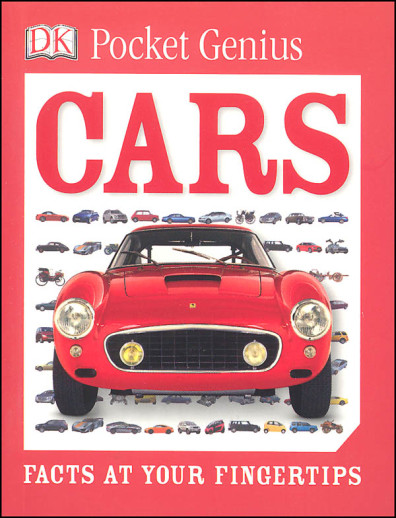We use cookies to make your experience better. To comply with the new e-Privacy directive, we need to ask for your consent to set the cookies. Learn more.
Pocket Genius: Cars
From the factory to the road, browse through more than 170 cool cars from hatchbacks to hybrids in Pocket Genius: Cars. Trace the history of the automobile from early vintage cars to modern concept cars, limousines to coupes, and minivans to sports cars in this compact-size reference guide perfect for children ages 812.
These books may be pocket sized, but theyre chock full of the fascinating facts, eye-popping photos, and detailed diagrams that youd expect in full size DK books. Each book presents a science topic in a clear, visual way that makes learning fun. Crisp, colorful photos and diagrams appear front and center on each page. Bite-sized chunks of text explain the concepts, with key terms appearing in bold. The back of each book has an index with statistics, a glossary, and index. Supports the Common Core State Standards. Please note: some books may contain evolutionary material. Books measure3 3/4" x 5" Pb, 155 pgs. ~ Lisa


As a gift for my car crazy son.